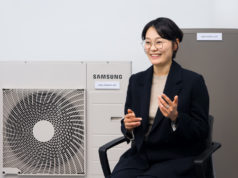The global devices market fell by 0.75 percent in 2015, according to a Gartner report, which noted that the overall market is not on pace to return to single-digit growth soon.
Worldwide combined shipments for devices, including PCs, tablets, ultramobiles and mobile phones, are expected to fall 3 percent in 2016, marking the second consecutive year of decline, according to a report from IT research firm Gartner.
The global devices market fell by 0.75 percent in 2015, and the report noted the overall market is not on pace to return to single-digit growth anytime soon.
Growth is on pace to remain flat during the next five years, with all segments expected to decline in 2016, except for premium ultramobiles and entry-level mobile phones, which are expected to show single-digit growth in 2016.
The ultramobile premium category includes devices such as Microsoft’s Windows 10 Intel x86 products and Apple’s MacBook Air, while the ultramobile basic and utility tablet category includes devices such as the iPad, iPad mini, Samsung Galaxy Tab S2, Amazon Fire HD, Lenovo Yoga Tab 3 and Acer Iconia One.
Total mobile phone shipments are on pace to fall 1.6 percent in 2016, and while the smartphone segment continues to grow, it is expanding more slowly than in previous years, and is expected to reach 1.5 billion units in 2016.
This year, the Android market is expected to continue to be bolstered by Chinese vendors offering more affordable premium devices.
Despite the availability of Apple’s recently released iPhone 7, Gartner expects a weaker year-over-year volume performance from Apple in 2016, as volumes stabilize after a very strong 2015.
As a result, the research firm expects the total smartphone market to only increase 4.5 percent, with premium smartphones declining 1.1 percent in 2016.
The report noted that the smartphone market is close to maturing and is reaching the point of global saturation with phones that are increasingly capable and remain good enough for longer.
The PC market is expected to exhibit an 8 percent decline in 2016, as the installed base bottoms out, replacement cycle extensions halt and regions such as Western Europe, where the euro depreciated significantly in 2015 and PC prices increased, finally showed flat market growth in the second quarter of 2016, following four consecutive quarters of decline.
The report noted that for the PC market to stay on pace for flat growth in 2017, business spending needs to flourish.
In addition, more affordable hardware and increasingly available virtual reality content such as games, stories and other entertainment will enable consumer PC buyers to upgrade in order to experience immersive offerings.







